Security Term
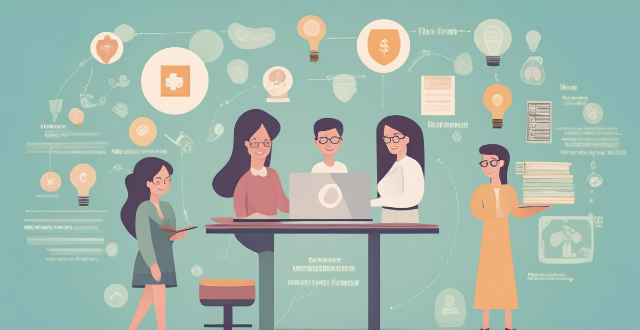
How can women protect their assets and ensure long-term financial security ?
The article provides a list of strategies that women can employ to ensure their financial security over the long term. These include building an emergency fund, investing in retirement accounts, purchasing life insurance, creating a will, considering long-term care insurance, educating oneself about finance, working with a financial advisor, and prioritizing career development. Each of these steps is crucial in its own way for safeguarding one's assets and ensuring financial stability.

Does restrictive immigration policy improve national security ?
The text discusses the complex question of whether restrictive immigration policy enhances national security. It explores various aspects including economic impact, social cohesion, international relations, and internal security dynamics to provide a nuanced understanding. The text concludes that while a restrictive immigration policy might seem appealing from a national security standpoint, it is not a silver bullet, as benefits must be weighed against potential negative impacts on different factors. A balanced approach that ensures thorough vetting without undue restrictions might prove more effective in enhancing national security in the long term.

What are the best home security systems available in the market ?
Home security systems have become an essential part of modern homes, providing peace of mind and protection against burglaries, fires, and other emergencies. With the advancements in technology, there are several home security systems available in the market that offer a wide range of features and benefits. In this article, we will discuss some of the best home security systems available in the market.

Can I retire early without jeopardizing my financial security ?
Retiring early is a goal for many, but it requires careful planning to ensure financial security. Key steps include assessing your current finances, setting clear retirement goals, creating a comprehensive plan, and seeking professional advice. By following these strategies, you can achieve early retirement without jeopardizing your financial well-being.
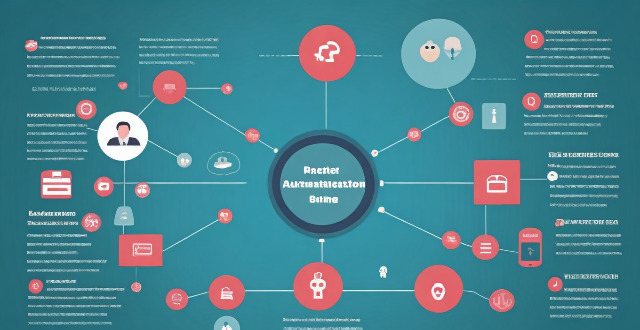
How does two-factor authentication enhance security ?
Two-factor authentication (2FA) is a security process that requires two different factors to verify the user's identity, enhancing security by reducing the risk of unauthorized access, providing alerts for suspicious activities, protecting against various types of attacks, increasing user confidence in online services, and helping maintain compliance with security standards. Its implementation should be carefully planned considering both security requirements and user convenience.

What features should I look for when choosing a home security system ?
When selecting a home security system, consider features likeWhen selecting a home security system, consider features like monitoring services, high-definition high-definition cameras with night vision and motion detection, smart home integration for remote control, sensors for intrusion and environmental hazards, and reliable customer support. Look for systems that offer additional benefits such as automation capabilities and come with a warranty for long-term peace of mind.

What is the significance of setting short-term versus long-term climate targets ?
The article emphasizes the importance of setting both short-term and long-term climate targets to effectively address climate change. Short-term targets focus on immediate actions, creating urgency, measurable progress, immediate benefits, and building momentum for more ambitious goals. Long-term targets ensure sustainability, deep decarbonization, adaptation, and global cooperation. Achieving these goals is crucial for mitigating the worst effects of climate change and creating a more resilient future.

Can renewable energy sources contribute to national security in the context of climate change ?
Renewable energy sources can contribute to national security by reducing dependence on fossil fuels, mitigating the impacts of climate change, and promoting economic stability.

Is there a difference between short-term and long-term memory in scientific terms ?
Short-term memory and long-term memory are two different types of memory with distinct characteristics. Short-term memory has a limited capacity, typically able to hold around seven items for a brief period, while long-term memory has a large capacity, virtually unlimited, and can store vast amounts of information for an extended period. Short-term memory lasts only for a few seconds unless it is repeatedly rehearsed or transferred to long-term memory, while long-term memory can last for minutes, hours, days, years, or even a lifetime. Short-term memory acts as a temporary holding place for new information, processing it before transferring it to long-term memory, while long-term memory stores information for future use, including facts, experiences, skills, and knowledge. Short-term memory has a faster retrieval speed since the information is readily available in the mind, while long-term memory has a slower retrieval speed as it requires more effort to recall the information from the vast storage. Short-term memory is more susceptible to interference and forgetting due to its transient nature, while long-term memory is more stable and less prone to interference, making it easier to retain information over time. Short-term memory requires rehearsal or encoding processes to transfer information to long-term memory, while long-term memory involves consolidation processes that strengthen neural connections and make the memory more durable.
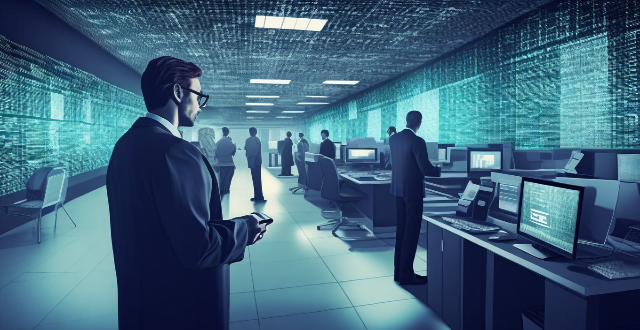
What are the security concerns related to Smart Grid Technology ?
Smart grid technology, which uses digital communication technologies to monitor and control the flow of electricity, offers benefits such as increased efficiency and reliability. However, there are security concerns that need to be addressed, including cyber attacks, data breaches, insider threats, physical security risks, and interdependencies with other critical infrastructures. It is essential to implement strong cybersecurity measures, strict access controls, and robust physical security protocols to protect the system's integrity and confidentiality.
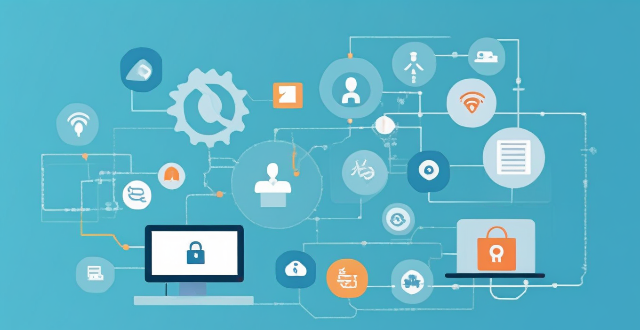
What are the security concerns related to IoT ?
The article discusses the major security concerns related to the Internet of Things (IoT), such as data privacy and confidentiality, device security, network security, physical security, and software vulnerabilities. It emphasizes the need for implementing appropriate security measures to ensure the secure deployment of IoT devices and protect sensitive information from unauthorized access.
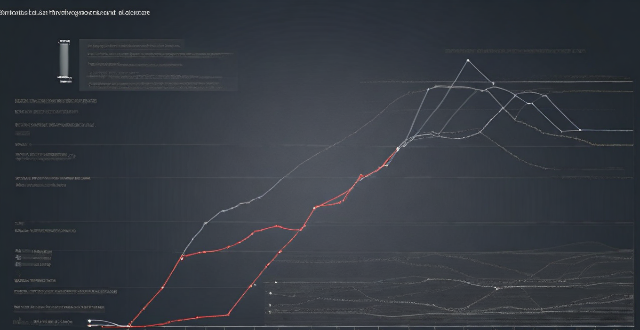
What is the importance of long-term climate data analysis ?
Long-term climate data analysis is crucial for understanding the Earth's climate system and its changes over time. It provides valuable insights into past climate patterns and trends, which are critical for predicting future climate conditions and developing effective adaptation strategies. By continuing to collect and analyze long-term climate data, we can better prepare ourselves for the challenges posed by a changing climate and work towards a sustainable future.

How do firewalls contribute to network security ?
Firewalls are crucial for network security, offeringFirewalls are crucial for network security, offering, blocking unwanted connections, preventing preventing network intrusion, enforcing security policies, providing VPN support, integrating with other security systems, protecting against known threats, offering customizable features, ensuring scalability and performance, and reducing the risk of data breach.
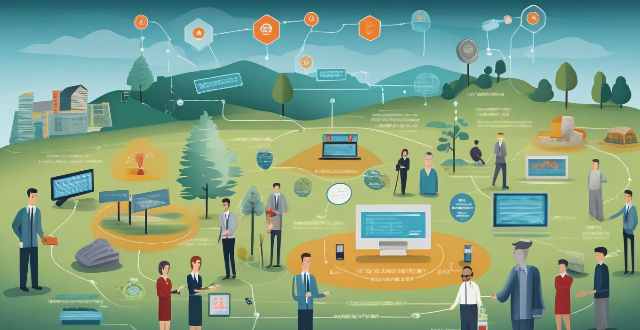
Can blockchain technology improve data security and privacy ?
Blockchain technology has been touted as a revolutionary tool that can improve data security and privacy. Its decentralized nature, encryption, and transparency make it difficult for attackers to compromise the network. Additionally, its anonymity, control over personal data, and smart contracts enhance privacy by giving individuals more control over their information.

What is the relationship between energy efficiency and climate change, and how can it contribute to energy security ?
Energy efficiency is crucial for mitigating climate change and enhancing energy security. It reduces greenhouse gas emissions by decreasing fossil fuel consumption, lowering energy production needs, and promoting renewables. Energy efficiency also contributes to energy security by diversifying sources, reducing costs, and improving system reliability.

What are some long-term saving strategies ?
Saving for the long term requires a disciplined approach and a solid plan. Here are some strategies to help you save effectively over the years: 1. Set clear financial goals: short-term, medium-term, and long-term. 2. Create a budget and stick to it by tracking expenses, cutting unnecessary costs, and automating savings. 3. Build an emergency fund that is easily accessible and covers at least 3-6 months' worth of living expenses. 4. Take advantage of employer matches and maximize contributions to retirement accounts like 401(k)s and IRAs. 5. Invest wisely with diversification, risk management, and a long-term perspective. 6. Manage debt by paying off high-interest debts first and considering refinancing options. 7. Regularly review and adjust your financial plan, adapting to life changes as needed. 8. Plan for taxes by choosing tax-efficient investments and being strategic about withdrawals and contributions. 9. Consider estate planning with wills, trusts, and life insurance to protect your family's financial wellbeing. 10. Continuously learn and seek advice from financial professionals when needed. By consistently implementing these strategies, you can build a strong financial foundation for your future.
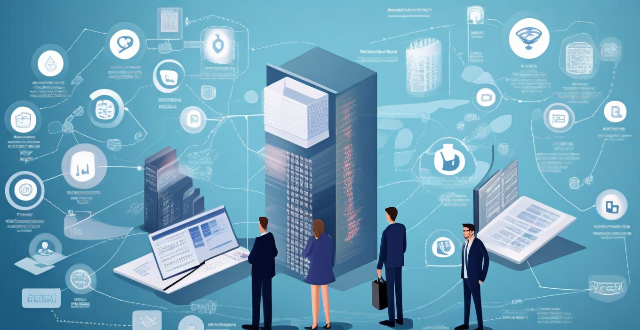
How do remote education platforms ensure data privacy and security ?
Remote education platforms ensure data privacy and security through encryption, access controls, two-factor authentication, regular security audits, and data retention policies. These measures help protect user data during transmission and storage, restrict access to sensitive information, add an extra layer of security, identify and fix vulnerabilities, and minimize the risk of data breaches.

How do I invest my money wisely for long-term growth ?
Investing wisely for long-term growth involves setting financial goals, creating a diversified portfolio, considering risk tolerance, investing for the long-term, and monitoring investments regularly.

How accurate are long-term climate predictions ?
Long-term climate predictions are essential for understanding potential future changes in the environment, but their accuracy is often questioned due to the complexity of the climate system. Factors that influence the accuracy of these predictions include uncertainty in emission scenarios, natural variability, and model limitations. However, advancements in climate modeling, such as higher-resolution models, ensemble modeling, and data assimilation techniques, have significantly improved our ability to make accurate predictions about future climate changes. By continuing to invest in research and development, we can further enhance the precision and reliability of long-term climate predictions, providing critical information for decision-makers and the public alike.

How can climate models be used to improve agricultural practices and food security ?
Climate models play a critical role in enhancing agricultural practices and ensuring food security by forecasting weather conditions, mitigating climate change effects, enhancing crop yield potential, and aiding in policy making. Applications include adapting to climate variability through crop diversification and improved plant breeding, strengthening resilience through water management and soil health maintenance. The use of these models is crucial for adapting to changing environmental conditions and ensuring global food security.

How does climate change affect food security and nutrition ?
Climate change significantly impacts global food security and nutrition by causing extreme weather events, altering ecosystems, reducing water availability, affecting marine life, posing agricultural challenges, and diminishing nutrient intake. Mitigation strategies include sustainable agriculture practices, dietary diversification, and research and development to ensure future food security and nutrition.

What are some tips for getting through security quickly and efficiently ?
Getting through security quickly and efficiently requires preparation and knowledge. Pack smart by following the 3-1-1 rule for liquids, keeping electronics separate, storing medications in their original containers, and wearing easy-to-remove shoes and jackets. Know the rules by researching specific security policies, having travel documents ready, and avoiding restricted items. At the security checkpoint, prepare your belongings by placing metal objects in your carry-on bag and separating liquids. Follow procedures by staying alert, complying with instructions, and moving swiftly. After security, reorganize and regroup by repacking liquids and reassembling any removed accessories or outer layers. Stay informed about any updates to security procedures before your next trip.

What are the latest trends in network security protection ?
Network security is a crucial aspect of modern computing, and it's constantly evolving to keep up with new threats. Here are some of the latest trends in network security protection: - AI and ML are becoming increasingly popular for detecting and responding to cyber threats. - IoT devices have poor security features or lack them altogether, making them easy targets for hackers. - With more businesses moving to the cloud, ensuring data is secure is essential. - Threat intelligence involves collecting information about potential threats and using it to improve defenses. - The zero trust model assumes that no one should be trusted by default, including those within an organization's network.
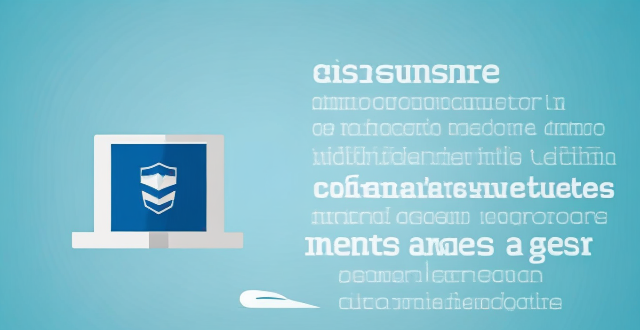
What are the main threats to communication security ?
The text discusses the main threats to communication security, which include eavesdropping and unauthorized access, malware and viruses, social engineering and phishing, insider threats, and DoS attacks. It also provides mitigation strategies for each threat, such as encryption, secure networks, physical security, antivirus software, firewalls, software updates, awareness training, email filters, multi-factor authentication, access controls, monitoring and auditing, termination procedures, rate limiting, content delivery networks (CDNs), and intrusion detection systems (IDS).

What are the potential impacts of climate conflicts on global security ?
Climate conflicts have the potential to significantly impact global security by causing economic disruption, political instability, and even armed conflict. Governments and international organizations must recognize this issue and take action to mitigate the effects of climate change.

What are some examples of how climate change has affected international security ?
Climate change has significant implications for international security, including resource scarcity and competition, displacement and migration, state fragility and failed states, environmental refugees, and national security threats. These challenges require global cooperation and strategic planning to mitigate their effects on international stability.
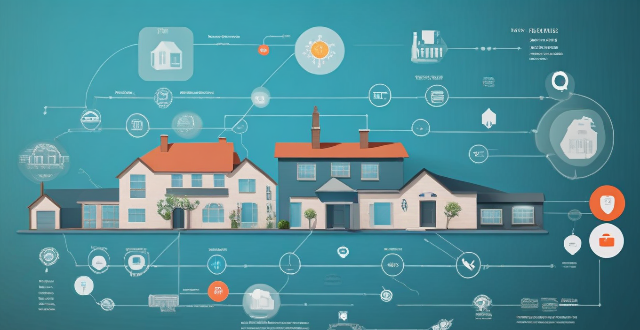
How much does a good home security system cost ?
The cost of a good home security system depends on various factors, including the type of system, features, installation fees, and monitoring services. While DIY systems are generally less expensive, professionally installed systems offer more advanced features and peace of mind through professional monitoring. When choosing a home security system, consider your specific needs and budget to find the best solution for your property.

What are the latest trends in cyber security ?
The text discusses the latest trends in cyber security, highlighting the following key points: 1. Ransomware attacks are becoming more frequent and can cause significant downtime and financial losses for businesses. Prevention is essential, with regular backups and employee training being crucial components of a robust defense strategy. 2. As more businesses move their operations to the cloud, ensuring the security of cloud-based systems has become a major concern. Cloud providers typically offer a range of security measures, but it is up to individual businesses to ensure that these measures are properly implemented and maintained. 3. The proliferation of connected devices has created new opportunities for cybercriminals to launch attacks. Many IoT devices lack adequate security features, making them easy targets for hackers looking to gain access to networks or steal sensitive data. 4. AI and ML technologies are becoming increasingly important tools in the fight against cybercrime, helping organizations identify and respond to potential threats more quickly and effectively than ever before. However, these technologies also create new opportunities for attackers to launch more sophisticated attacks or evade traditional defenses.

How does encryption contribute to network security protection ?
Encryption is pivotal for network security, offering robust defense against unauthorized data access and cyber threats. It transforms readable plaintext into ciphertext using sophisticated algorithms, protecting data at rest, in transit, or being processed. Encryption's economic impact is significant, with organizations leveraging it reducing financial impact of data breaches by over USD 220,000. The global encryption software market is projected to hit USD 20.1 billion by 2025. Regulatory compliance and standards are increasingly requiring encryption for data privacy and security. Its historical significance dates back to ancient civilizations, evolving from wartime secrecy to everyday data protection. Network security objectives include preventing unauthorized access, detecting and interrupting cyberattacks, and ensuring authorized user access. Data breaches have costly consequences, with the global average cost standing at USD 4.45 million per incident. A defense in depth approach involves layering multiple security controls between attackers and potential vulnerabilities. In conclusion, encryption is an indispensable component of network security protection, offering a robust defense against unauthorized data access and cyber threats. Its ability to transform plaintext into ciphertext, compliance with regulatory standards, and evolving sophistication through AI illustrate its dynamic role in safeguarding digital communications. For individuals and organizations alike, investing in encryption is not just a recommendation but a necessity for safeguarding against the ever-growing landscape of cyber threats.